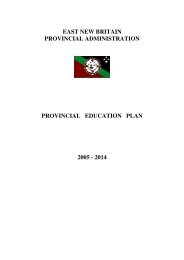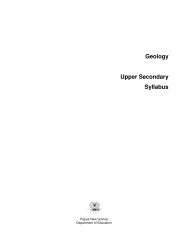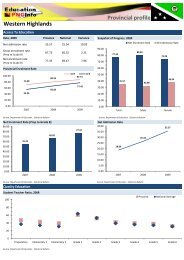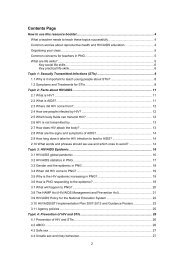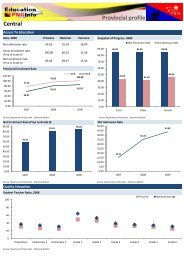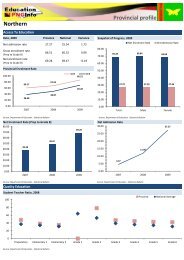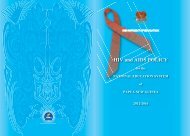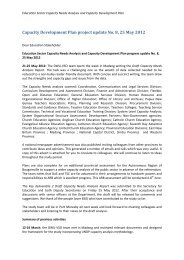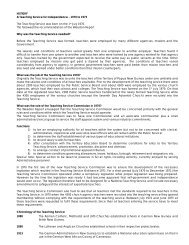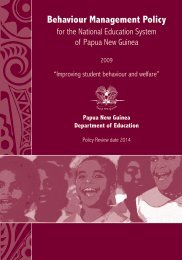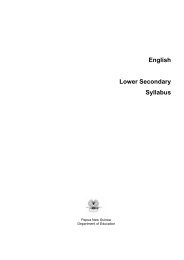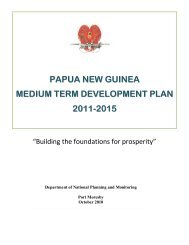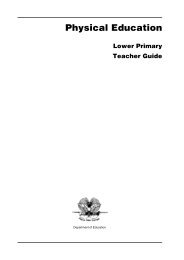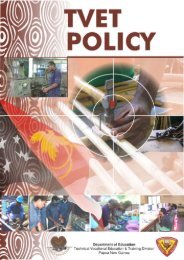Biology Upper Secondary Teacher Guide - Department of Education
Biology Upper Secondary Teacher Guide - Department of Education
Biology Upper Secondary Teacher Guide - Department of Education
Create successful ePaper yourself
Turn your PDF publications into a flip-book with our unique Google optimized e-Paper software.
<strong>Biology</strong>is on the student’s investigation <strong>of</strong> the issue in its context by researching,identifying the issues or problems, collecting, analysing and commenting onsecondary data and information. Students should be encouraged to considerand explore a variety <strong>of</strong> perspectives as they develop and state their positionon the issue. Students may present the final investigation for assessment ina variety <strong>of</strong> forms, including one or a combination <strong>of</strong> the following: a writtenscientific report, an oral presentation, a website, linked documents,multimedia, a video or audio recording.Criteria for judging performanceThe student’s performance in the investigation will be judged by the extent towhich the student:• identifies and describes the issue or problem• states a hypothesis• describes and explains the causes and effects• records and appropriately processes data• critically analyses processed information and outlines possible stepsleading to a solution or recommendation• acknowledges errors and suggests alternatives.PortfoliosA ‘portfolio’ provides evidence for judgements <strong>of</strong> student achievement in arange <strong>of</strong> contexts. A portfolio contains a specific collection <strong>of</strong> student work orevidence. This collection <strong>of</strong> work should provide a fair, valid and informativepicture <strong>of</strong> the student’s accomplishments.Computer-based tasksUsing computers to administer student assessment can provide flexibility inthe time, location or even the questions being answered <strong>of</strong> students. Themost common type <strong>of</strong> computer-based assessment is based on multiplechoicequestions, which can assist teachers to manage large volumes <strong>of</strong>marking and feedback.Process skills assessmentsThis method <strong>of</strong> assessment component involves assessing students’understanding <strong>of</strong> concepts based on the practical skills that can be used, theevaluation <strong>of</strong> work done, and/or the reporting <strong>of</strong> information. These skillsinclude, for example:• interpretation skills• evaluation skills• reflection skills• communication skills (for example, writing, speaking, and listening).Types <strong>of</strong> assessment tasksUsing different assessment tasks is the way to make sure that students areable to demonstrate the range <strong>of</strong> their abilities in different contexts. Eachcategory has advantages in assessing different learning outcomes. For18



